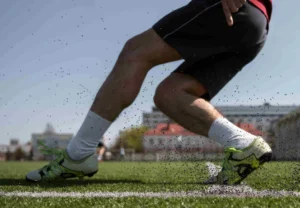Which Libertadores teams are sponsored by bets?

Written by :
Heloisa Vasconcelos

Reviewed by :
Larissa Borges

Brazil is the largest country in Latin America in the world of sports betting , and this is evident when we see that 95% of the teams in the Brasileirão series A are sponsored by betting sites.
A study by GE showed that of all teams from Series A to C of the Brazilian Championship, 68% of the sponsors are bookmakers . But do we see this relationship between sponsorships and bets in Latin American competitions?
Aposta Legal Brasil surveyed the brands that will sponsor the teams in 2024 of the continent’s biggest football competition, the Libertadores. We considered the master sponsors. See the data below:
| Team | Sponsor | Country |
|---|---|---|
| Workshops | ICBC | Argentina |
| Students | Saint-Gobain | Argentina |
| San Lorenzo | Brubank | Argentina |
| Rosario Central | City Center | Argentina |
| River Plate | Codere | Argentina |
| The Strongest | Tigo | Bolivia |
| Bolivar | Suzuki | Bolivia |
| Fluminense | Superbet | Brazil |
| São Paulo | Superbet | Brazil |
| Guild | Lucky Sports | Brazil |
| Botafogo | PariMatch | Brazil |
| Flamengo | Pixbet | Brazil |
| Palm trees | Lucky Sports | Brazil |
| Atletico-MG | Betano | Brazil |
| Lap-Lap | Coolbet | Chile |
| Coppersal | TANDEM | Chile |
| Huachipato | Novibet | Chile |
| Palestinian | BETesporte | Chile |
| Junior Barranquilla | Eagle | Colombia |
| Millionaires | Andean | Colombia |
| Barcelona from Guayaquil | Pichincha Bank | Ecuador |
| LDU | Pichincha Bank | Ecuador |
| Independent of the Valley | DirecTV | Ecuador |
| Porteño Hill | Bet.La | Paraguay |
| Freedom | GranaGard Pulp | Paraguay |
| National | Antel | Paraguay |
| Lima Alliance | Total Bet | Peru |
| University student | Total Bet | Peru |
| Liverpool (URU) | Antel | Uruguay |
| Peñarol | Nissan | Uruguay |
| Caracas | Sellatuparley | Venezuela |
| Tachira Sports | Simmonds Equipment | Venezuela |
To give you an idea, of the 32 teams participating in this year’s Libertadores, all 7 Brazilian teams are sponsored by some betting house. Next comes Chile (where there is still no regulation), with 3 sponsors, Peru with 2 and Paraguay and Venezuela with 1 each. The other countries, such as Argentina, Colombia, Ecuador and Uruguay, do not have any betting house sponsors.
This shows how the sports betting market has been growing more and more in Brazil. The sponsorship of these brands in Brazilian clubs being shown to South America can give these houses more international visibility and, consequently, more revenue.
Even the Conmebol competition itself has SportingBet as one of its biggest sponsors, alongside big brands such as Amstel, Coca-Cola, EA Sports and Mercado Livre.
Why are there no betting house sponsors in the rest of South America?
Despite being the countries that started regulating sports betting in South America, Colombia and Argentina do not have any bookmakers as their main sponsors.
In the case of Argentina, there is current concern about young people’s access to sports betting, even going so far as to block access to these sites in the country’s public schools.
This may be related to the fact that countries like Argentina and Colombia understand that sports betting can negatively affect part of the public who do not know what responsible gaming is, according to a study by Playtech in 2023.
Below, you can see how Argentina, Colombia and Peru have high rates of people who gamble for fun. However, the rates of people who responded that gambling does not affect their lives are low.

Most sponsors of teams from other South American countries are banks, technology companies and automotive brands, such as Nissan. This may also be a big reason why many South American teams do not link their images to betting houses.
Why does Brazil have so many betting house sponsors?
If Brazil is such a big country, with great football clubs, why do most teams depend on sponsorship from betting houses?
A survey by Ibope Repucom , which has been conducting a study on soccer team sponsors in Latin America since 2018, found that major brands were no longer investing in Brazil, while they were investing in other clubs in Latin American countries. Some examples are airlines, automobiles, alcoholic and non-alcoholic beverages, home appliances, pharmaceuticals, among others.
The reasons may be numerous and different for each large company, according to José Colagrossi, director of IBOPE Repucom. But according to him, many of the reasons ended up being the poor management of clubs in Brazil and the credibility of teams, since many of them were also in financial crisis and sponsors did not want to bear these debts or did not want to associate their images with the clubs.
We can see a much greater movement nowadays in the management of football teams, but still not enough to regain the trust of big brands.
